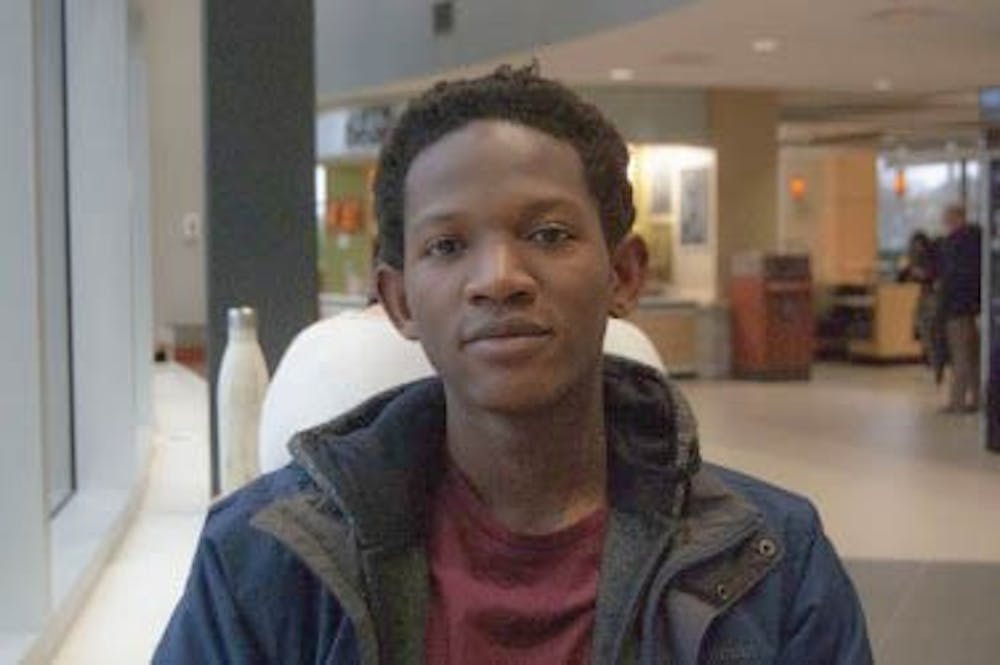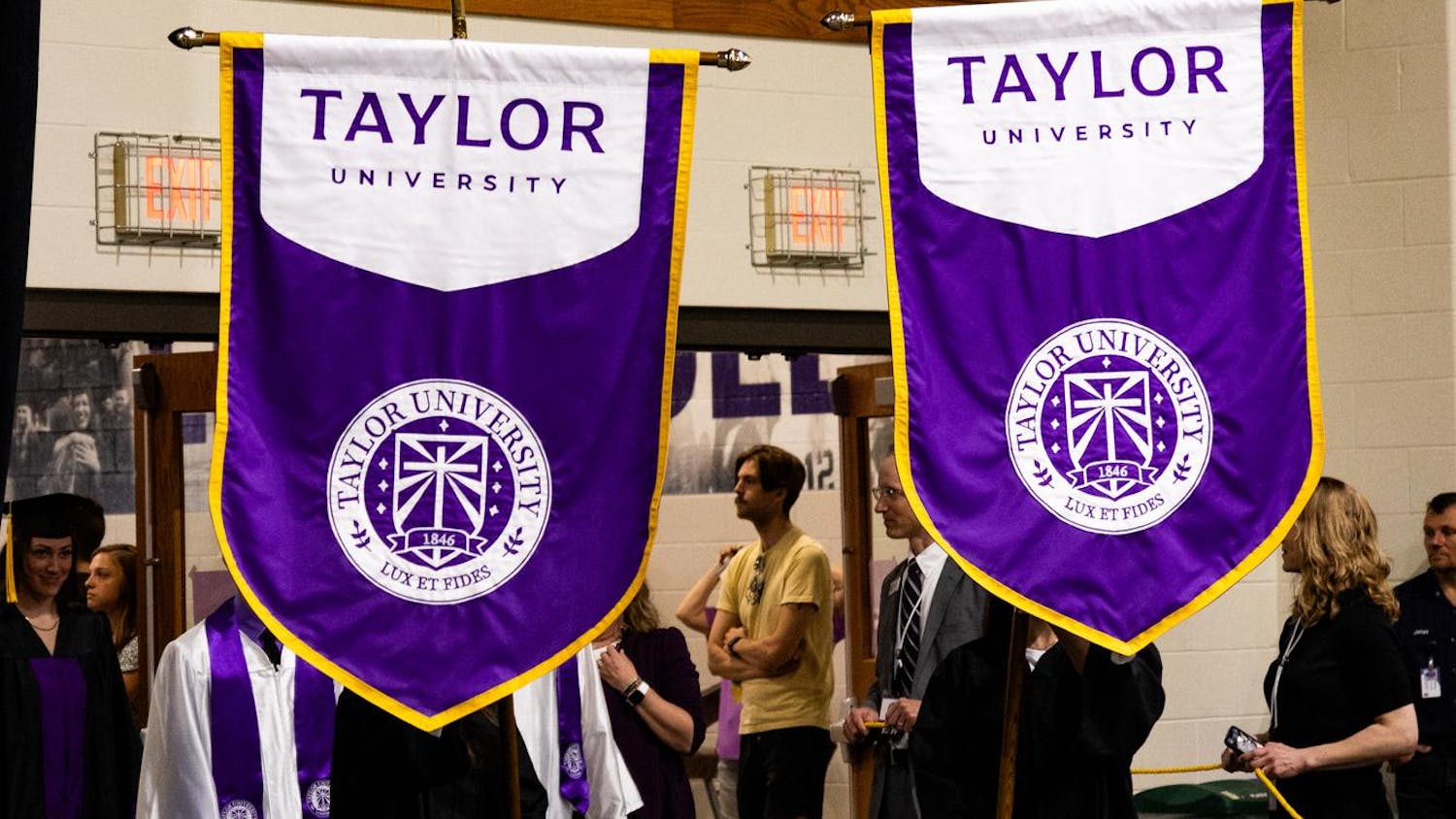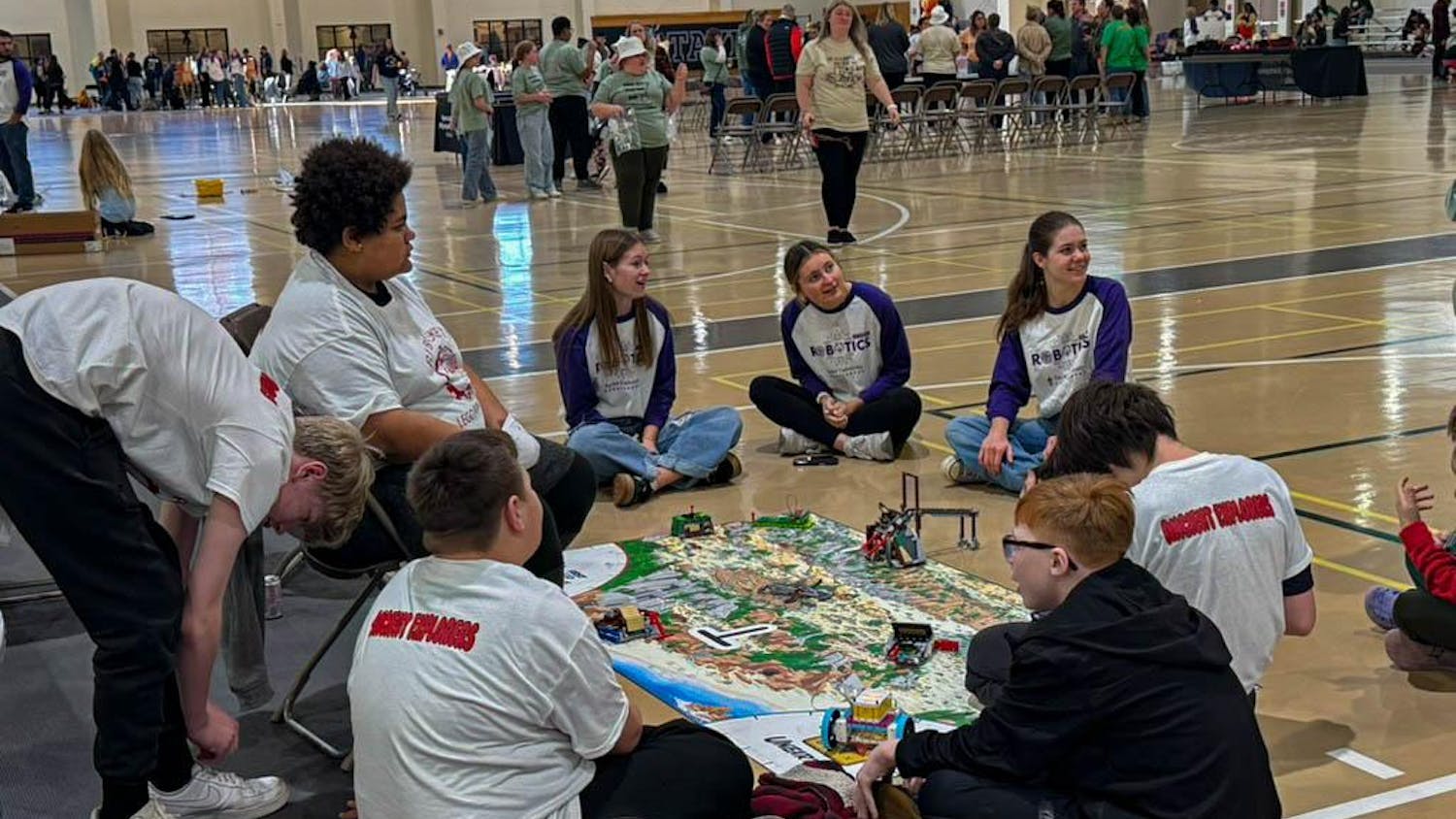By Carly Wheeler | Contributor
"A man lives alone in Alaska. In the winter, a woman comes running in a wedding dress. The interaction he has with the woman, who has obviously run away from her wedding and is mentally distraught - and the man has isolated himself from civilization - you learn that it's because his baby died. That just broke him apart."
Junior Brandt Maina recalled the pieces of this story, not as someone who experienced it in isolation in Alaska, but on a stage in Upland.
Maina, a musical theatre major, has acted in 10 theatre productions at Taylor, giving him the opportunity to become many characters and empathize with experiences unfamiliar to him.
The story about the encounter between strangers in Alaska comes from the play, "Brilliant Traces." In this student-directed play in the Spring of 2018, Maina was the character of the isolated man. To prepare for this role, and any role, it takes preliminary outside research before bringing the character to the stage.
"It's a lot of research," Maina said. "Analyzing the play really well to figure out what the playwright is trying to say and what he or she is trying to say through this character, and . . . for me personally, finding out what the character wants is crucial."
Maina found that one of the challenges of this role was empathizing with what it would be like to be a father. He created a board on Pinterest solely containing pictures of fathers with their babies as a form of research, so he could see how they interact and then find a way to embody it as his character.
Maina pointed out you can still empathize with people's experiences when you haven't experienced the same things as them. Hearing a person's story to learn and understand is one way we can explore the human condition together, in theatre and in life.
Exploring philosophies and the human condition is what initially drew Maina to the theater. Real experiences - life, death, marriage, relationships and other real human struggles - are addressed and worked through in this space. And in this we can become self-aware and discover why people do what they do and why they believe what they believe.
"I think a lot of people might not catch that about theatre," Maina said. "They might think it's just frivolous activity of pretending and make believe and makeup and costumes - which it is - but that's not what it is only. It's mostly about playwrights exploring and talking about and writing about the human condition. And that's what draws me to it. That's why I love it."
The work leading up to a show - the research, the memorization, the physical and mental preparation - makes the character and their world real. This is what reaches an audience, giving Maina the energy to get up and do it all again each day.
At the end of a show, when the curtain is drawn, Maina hopes he has been well-concentrated and accomplished what the play has asked him to while portraying his character well.
"I just love exploring being other people and putting my feet in (their) shoes," Maina said. "And if I do that well enough to make it believable, people are like, 'that was believable, I believed you were that person,' then that to me feels great. That's the reward."
Q: Where do you see the value in sharing stories?
"I think, even though we all have such variances in our personal experiences, there's nothing you're experiencing that no one else has ever experienced. Maybe the set order of the way you're experiencing things is unique, but the experience itself is not anything new. People have been experiencing those things for thousands of years. Heartbreak, sadness, joy, love, stress, anxiety, aggression, everything you're feeling is so universal, and there's something that draws you close to other people. And that's why I think I like stories. Because (we are) able to relate to somebody else." - Brandt Maina




